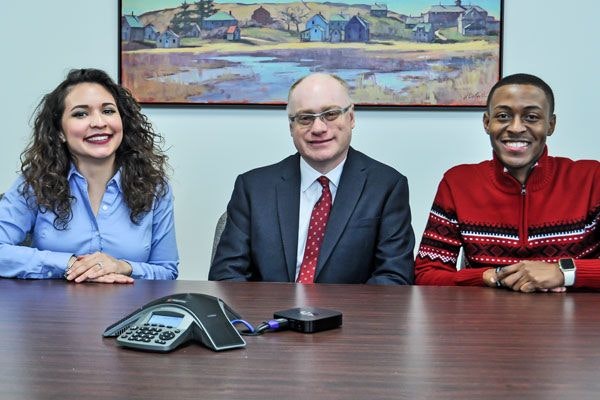Medical Malpractice Lawyer Richmond Millions Recovered for Injured Patients
- Six-figure victories for medical malpractice clients
- Work one-on-one with Mr. Josh Silverman
- Recognized by Super Lawyers® & Martindale-Hubbell®
- No upfront fees unless we win your case
You May Be Entitled to Millions What to Know About Medical Malpractice Under Virginia Law
Virginia sets caps on the damages in medical malpractice claims, but they are quite high. For example, in any medical malpractice claim where the incident occurred from July 1, 2023, through June 30, 2024, the victim can obtain as much as $2.6 million in compensatory damages. This maximum raises by $50k every year.
Compensatory damages refers to the standard form of compensation awarded to medical malpractice victims for medical bills, lost wages, and more. When medical malpractice is particularly egregious, punitive damages of up to $350,000 may also be awarded. Cases that warrant an award of punitive damages include physicians performing unnecessary surgery to increase their profits and nursing homes that refuse to hire sufficient staff to care for their patients.
Why Richmond Reaches Out To Our Medical Malpractice Lawyer

Super Lawyer
Super Lawyers® utilizes a patented 12-step evaluation system to determine which lawyers stand out from their peers. In any given year, a maximum of 5% of attorneys in the state can be named a Super Lawyer. Mr. Silverman has earned this honor every single year from 2015-2024.
AV-Preeminent
Martindale-Hubbell® is a prestigious attorney evaluator that relies on peer rankings. In 2023, Mr. Silverman's fellow lawyers stated that our attorney maintains the highest level of knowledge, communication skills, and ethics, leading to his earning the top peer rating possible, AV-Preeminent.
Get Started With No Upfront Charges Our Medical Malpractice Lawyer Is Ready to Review Your Case
Mr. Silverman understands that surgical errors, birth injuries, and other forms of medical malpractice can cause significant pain and stress – physically, emotionally, and financially. To help his Richmond clients focus on recovery and not worry about paying attorney fees, he handles his personal injury and medical malpractice cases on a contingency basis.
This means our attorney does not charge a single cent upfront. We only get paid from the settlement or verdict he obtains, while his client keeps the majority of any compensation. This ensures his focus is on getting the most money possible.
(804) 325-4992

“Can't say enough wonderful things” What Patients Loved About Working With Mr. Silverman
Silverman Law Firm advised and guided us through the entire process, and the outcome was fantastic. We are very grateful for everyone that helped us finally get a great outcome. We highly recommend Silverman Law Firm!
View on GoogleCan’t say enough wonderful things…Always so helpful and quick to respond to any of my questions or concerns. Got excellent support and a settlement I would never have gotten from an insurance company.
View on GoogleExamples of Malpractice We Handle Fighting for Patients Harmed by Any Form of Negligence
Misdiagnosis
If you or a loved one suffered a heart attack and went to the ER with complaints of chest pain, but were misdiagnosed with and treated for gastrointestinal problems, you could have a case for medical malpractice.
Failure to Diagnose
A doctor can be found liable for medical practice if a patient presented to them with lumps or growths that are consistent with certain types of cancer, but the doctor failed to diagnose the cancer in a timely manner.
Surgical Error
There are many types of surgical errors that can be classified as medical malpractice. These include operating on the wrong side of the body, leaving surgical instruments in the body, or removing healthy organs.
Birth Injury
An example of medical malpractice causing birth injury is if medical professionals failed to act in a timely manner and delayed a C-section after detecting vital signs that should have immediately led to the procedure.
Ask Us About a Free Consultation to Determine If You Have a Case
You do not have a case just because a medical treatment didn't lead to perfect results.
A medical malpractice case is a case against a health care provider who failed to comply with the "standard of care." In a Virginia medical malpractice claim, the standard of care is what a reasonable doctor, nurse, pharmacist, hospital, nursing home, or other care provider would have done under similar circumstances.
A healthcare provider who fails to comply with the standard of care is negligent. If this negligence led to personal injury or wrongful death, you can file a medical malpractice lawsuit to sue the provider for compensation.
Our medical malpractice attorney can evaluate your case during a free consultation at our Richmond, VA, personal injury law office.
(804) 325-4992
Examples of Compensation Mr. Silverman Helps Clients Achieve
Our medical malpractice attorney, Joshua Silverman, can seek compensation in a variety of categories, including:
- Caregiving expenses
- Funeral costs
- Future medical expenses
- Lost companionship
- Lost wages
- Medical bills
- Mental anguish
- Physical pain
“You will be in great hands” Richmond Trusts Mr. Silverman in Times on Need
Joshua was amazing, honest and very personable, as he explained all my options and recommendations for counsel. You will be in great hands and your results will reflect, how he feels about his clients and the results.
View on GoogleJosh is an excellent lawyer, and walked me through every step of the process. He does a fantastic job explaining all the details, and puts in the extra effort to give you opportunities to choose how you want to approach each case. Highly recommend!
View on Google


